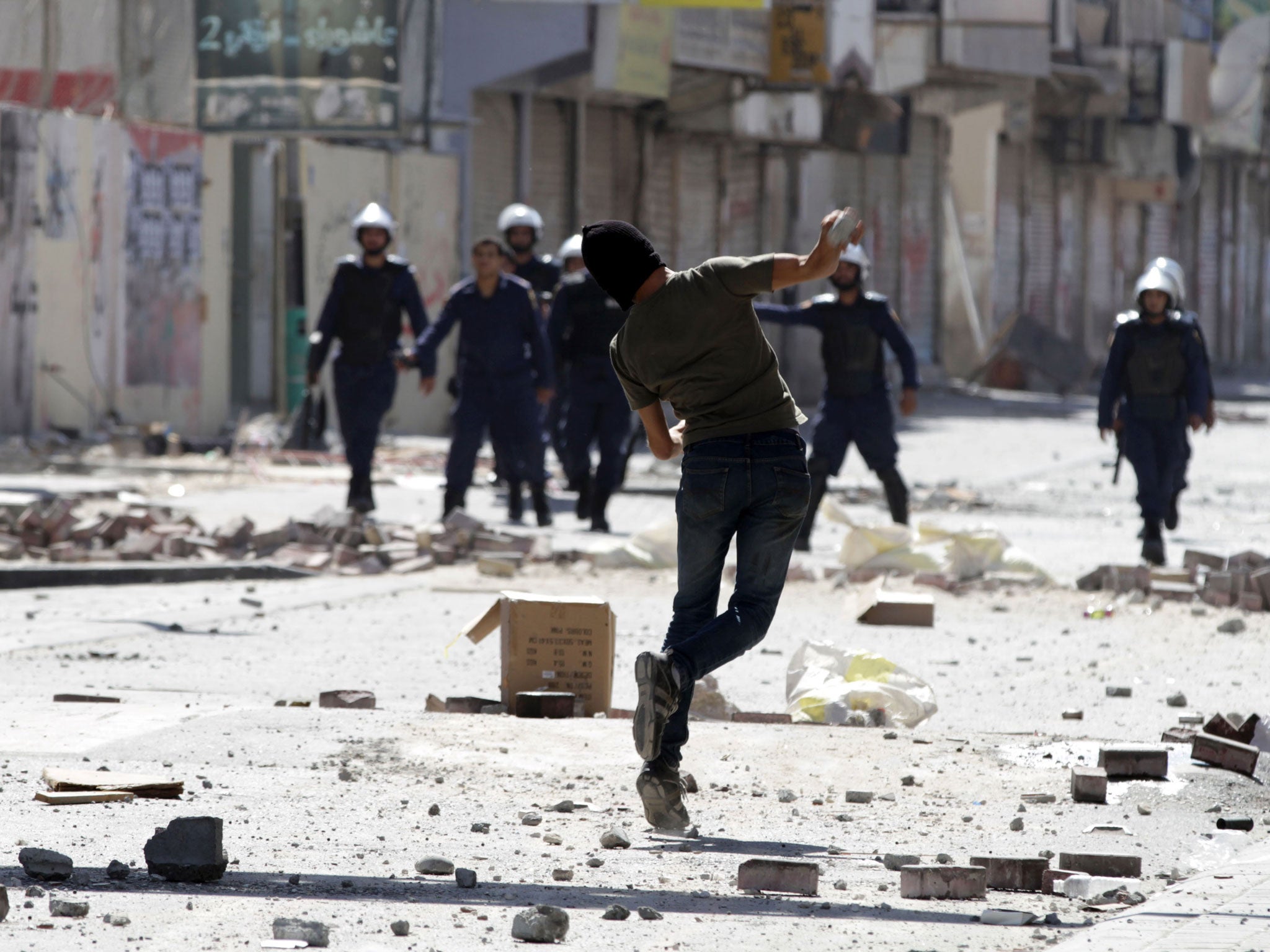Teenager's death marks anniversary of Bahrain's uprising
Two years on, little has changed as Shia muslims continue to protest against the Sunni government

A 16-year-old boy was shot dead during protests which marked the two-year anniversary of the uprising in Bahrain.
The worst of the clashes took place in the Shia villages surrounding the capital Manama, including Diah, where Ali Ahmed Ibrahim al-Jazeeri was shot in the early hours of the morning.
The government pledged to investigate, saying that police had been confronted with 300 “rioters” in the village and had fired warning shots before being forced to “defend themselves”.
Ali was shot at close range with rifle pellets, according to the opposition party Al Wefaq.
As photos of his dead body were circulated online, parallels were immediately drawn with the death of 21-year-old Ali Mushaima, who was shot by security forces in Diah on Bahrain’s “Day of Rage” in 2011 when, inspired by Arab Spring style demonstrations in Tunisia and Egypt, protesters first took to the streets demanding increased political participation.
Mushaima’s killing fanned the flames of the Bahrain protest movement, largely made up of the country’s Shia majority who complain of discrimination in the island nation which is ruled by a Sunni monarchy and Sunni-dominated government. The intervention of Saudi Arabian-led Gulf forces crushed the uprising six weeks later, but bouts of unrest have continued and protests have escalated in the days leading up to the anniversary.
There are concerns that this Ali’s death may have a similar incendiary effect and derail delicate reconciliation talks between the Shia-dominated opposition and the government, which began on Sunday for the first time in more than a year and a half.
The Chief of Public Security, Major-General Tariq Hassan al-Hassan, urged people not to exploit the killing “for political purposes”.
The unrest began as groups of youths gathered and blocked roads around the capital Manama in the early hours of the morning, but confrontations soon turned violent.
Protestors threw stones and molotov cocktails before riot police dispersed them with tear gas, rubber bullets and birdshot, before they regrouped once more. Dozens of protesters and at least three policemen were injured.
The government claims to be taking steps to reform its judiciary and security forces after an independent inquiry, commissioned by the Bahraini royal family last year, concluded that it had used “excessive force” in dealing with protesters during its uprising, during which at least 35 people were killed. However, human rights groups say they have not gone far enough.
In a report released on Thursday, Amnesty International criticised the government for holding 22 prisoners of conscience and urged it to bring those responsible for human rights abuses against protesters to justice.
“The government of Bahrain cannot carry on imprisoning people simply because it can’t take criticism. It’s time that people detained simply for exercising their right to freedom of expression be released and for the harassment of other activists to desist,” said Hassiba Hadj Sahraoui, Amnesty International’s deputy director for the Middle East and North Africa. Bahrain’s government denies that it has any political prisoners.
Subscribe to Independent Premium to bookmark this article
Want to bookmark your favourite articles and stories to read or reference later? Start your Independent Premium subscription today.

Join our commenting forum
Join thought-provoking conversations, follow other Independent readers and see their replies